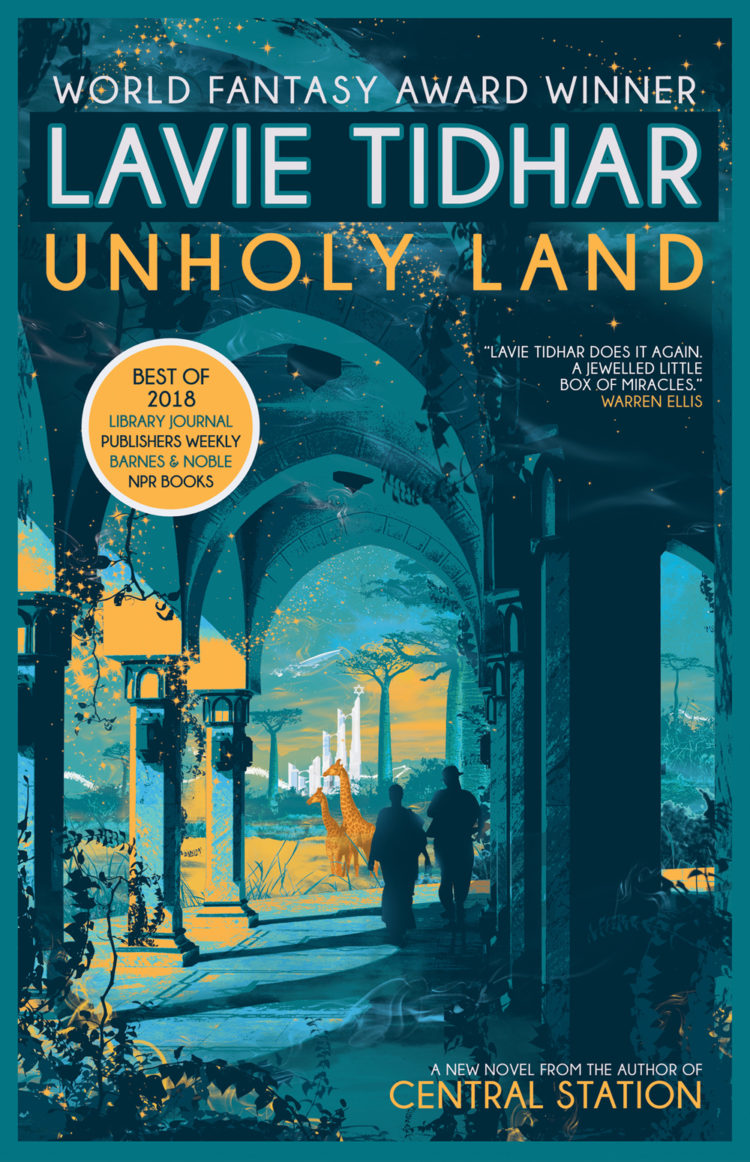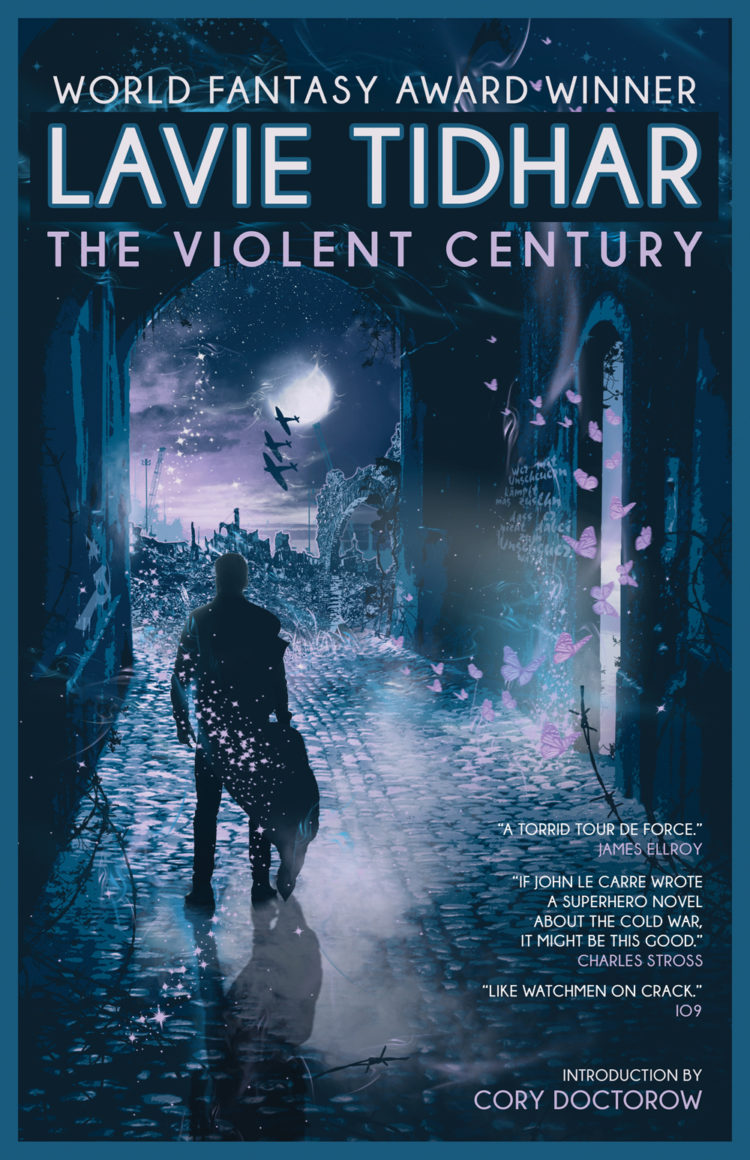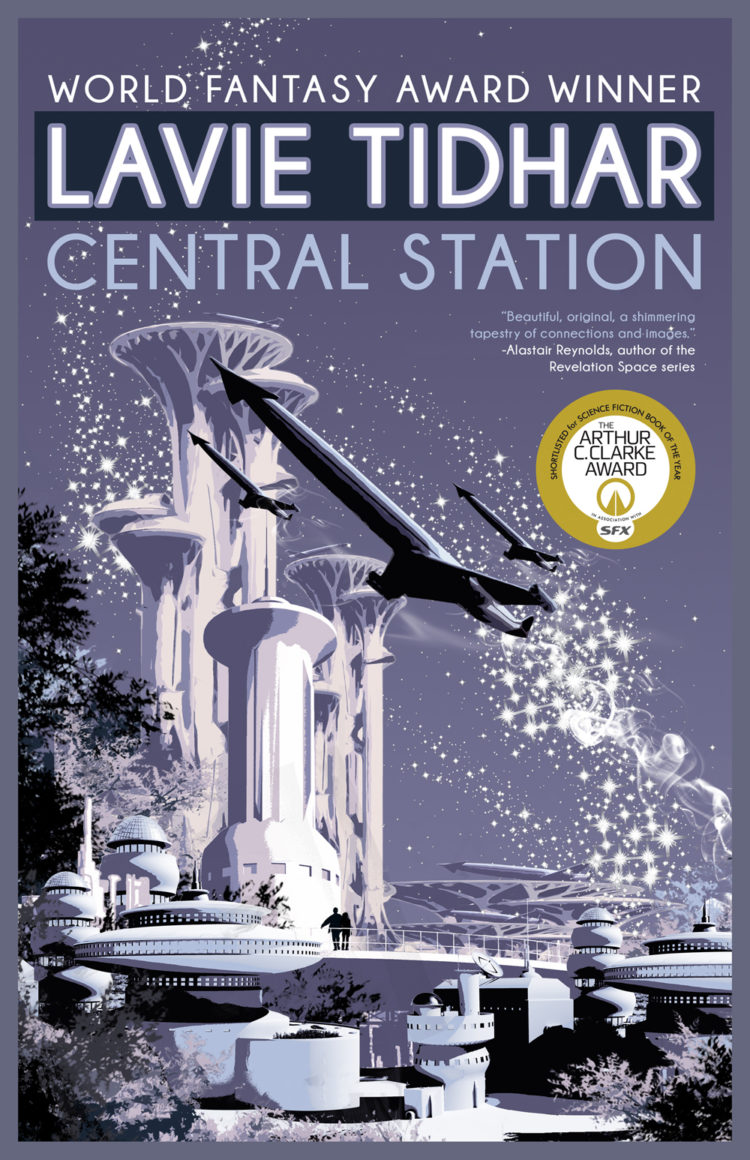Using the imaginative power of fluidity, Lavie Tidhar’s entire literary career gives insights into the complex nature of historical reality

At BOOK RIOT, Emily Martin includes Lavie Tidhar’s Lavie Tidhar’s UNHOLY LAND among 10 Books That Explore the Multiverse.
UNHOLY LAND is set in an alternate universe where a Jewish homeland called “Palestina” has been established in East Africa. Lior Tirosh is a pulp fiction writer with a not-so-impressive publishing record. Tirosh returns home to Palestina from Europe in a time when unrest in Ararat City is growing. Suddenly he finds himself one of the prime suspects in a string of murder cases. And the only way to get himself out of this mess? Without spoiling anything, just know it’s going to involve traveling to alternate universes.
Amandine Faucheux in the SFRA REVIEW (Vol. 50, No. 2-3 [Spring-Summer 2020]) praises the novel.
Tidhar’s novel is a powerful, labyrinthine story reminiscent of China Miéville The City and The City (2009) and, in a much more subtle and controlled way, some of the best of Philip K. Dick. With its careful and intelligent treatment of some of the most difficult questions arising from the Israel-Palestine conflict, it will undoubtedly become a staple of postcolonial science fiction courses. Its straightforward prose and short format will provide for a productive introduction to discussions about border conflicts, nationality, nationalism, and imperialism while also allowing teachers to outline some of the key features of the best of sf. As Tirosh himself explains during a reading at a bookstore: “What we do [when writing stories of alternative realities] is literalise the metaphor…We construct a world of make-believe in order to consider how our own world is constructed, is told.” (113-4).
In the same issue of SFRA REVIEW, Jeremy Brett lauds Tidhar’s THE VIOLENT CENTURY.
Tachyon’s reissuing of older works (as well as the publication of new ones) by Israeli-British author Lavie Tidhar is an incredibly welcome gift. Tidhar’s concern with shifting perceptions of history is increasingly relevant in an age where an objective chronicle of facts seems increasingly like an outdated product of a more innocent age.
[…]
THE VIOLENT CENTURY, like much of Tidhar’s output, is an excellent addition to the literature of shifting perceptions of reality, most obviously represented by Philip K. Dick. It is also an effective counterexample to the artificiality of “genre”—the novel is at once an alternate history, a spy novel, a story of superheroes, and a war novel. Fitting many boxes and at the same time none at all, Tidhar’s novel (indeed, his entire literary career) demonstrates the imaginative power of fluidity to give us insights into the complex nature of our historical reality.
Stephanie Chaptal for the French DE L’AUTRE CÔTÉ DES LIVRES enjoys Tidhar’s CENTRAL STATION.
Gently, by small touches, Lavie Tidhar tells a choral story of great beauty where cruelty and distress mingle with the beauty of the little things of everyday life and with hope. Enough to make you want to read others by the same author.
Translation from French courtesy of Google
CLARKESWORLD (Issue 168, September 2020) offers Tidhar’s short story “Blue And Blue And Blue And Pink” in print and audio versions.
Purple clouds roiled on the horizon and the old Cessna Centurion came in low and fast, riding the tailwind. Giorgio, on the ground and looking up, took shelter behind a crude half-shed of corrugated iron and lit a cigarette with a Zippo he’d once bought in the Talat Sao back in Vientiane. It was supposedly owned by a downed Air America pilot during the Secret War.
He stared at the plane coming in from the border. Smoke was coming out of the engine and half a wing looked like it’d been strafed, and Giorgio wondered who it was flying it. One of the Israelis, maybe.
The plane, trailing smoke, dove down low as it lined up to the landing strip. All the pilots came out to watch. The Cessna struggled in the air, then righted, the engine whine louder now. The Cessna hit the strip with a bump and Giorgio coughed smoke, but then it came down safely and coasted the rest of the way and came to a halt.
Everyone cheered.


